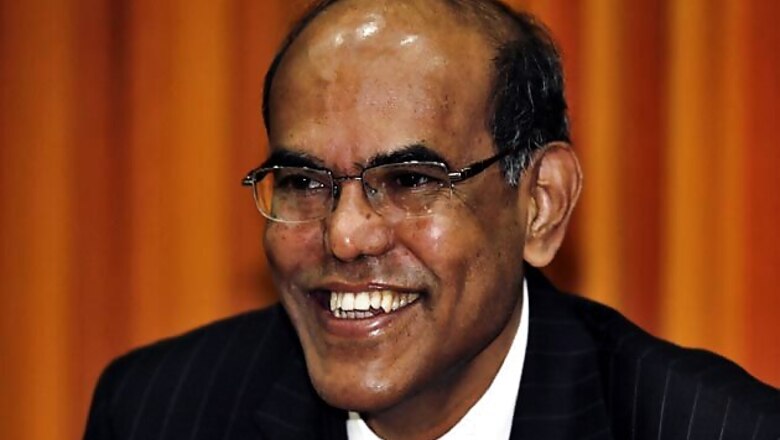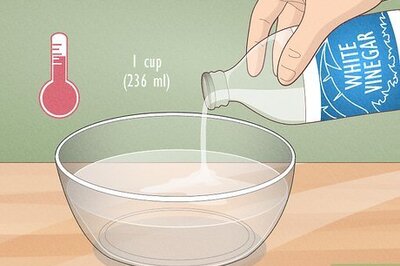
views
New Delhi: Describing the current downturn a short-term phenomenon, RBI Governor D Subbarao on Saturday said Indian economy is mature enough to absorb 'shocks' and the country's growth story is intact.
"The structure of the economy has changed (since 1991). Our financial markets are more matured, more diverse and much deeper. They have the resilience to absorb shocks," he said while participating at a panel discussion on India's economic reforms and development.
The Governor, who will be unveiling the annual credit policy on April 17, however, expressed concern over widening fiscal and current account deficits and talked about governance issues.
"There are serious concerns about macro-economic, about our policy and governance", he said. The discussion, among others, was attended by Prime Minister Manmohan Singh who also acknowledged that economy was facing 'difficulties" but expressed hope that they will be overcome.
Subbarao further said although the key indicators like fiscal deficit and current account deficit were at the same level as in 1991 when the country had to take drastic actions to deal with the problem, but "implosion was not imminent in 2012".
He said, "India's growth story is intact ... current downturn is short-term phenomenon". India's economic growth during 2011-12 slipped to three year low of 6.9 per cent, down from 8.4 per cent in the preceding two years. The government expects the GDP to expand by 7.6 per cent in the current fiscal.
Earlier in the day, Subbarao met Singh and Finance Minister Pranab Mukherjee to discuss the country's macro-economic situation and is believed to have discussed the steps to be announced in annual credit policy to arrest declining growth.
Subbarao said the country's "regulatory system under crisis response mechanism is more robust and more sophisticated. The services sector that dominates today, was less than 50 per cent in 1991. Today it is over 60 per cent."
Pointing out that the fiscal deficit was high, he said, "we must also acknowledge that all (problems) are structural. We had a crisis. We gave fiscal stimulus. Growth had gone down, therefore revenues went down. We had to borrow more."
The government proposes to bring down the fiscal deficit to 5.1 per cent of the Gross Domestic Product (GDP) in the current fiscal from 5.9 per cent a year ago.
As regards the current account deficit, he said, it was high on account of various international and domestic factors including high import of gold.
"Imports of gold were high because under the present scenario gold is safe haven. It is hedge against inflation. Therefore people are buying gold. But over time as domestic situation improves and inflation comes down, I believe this appetite for gold will come down.
"Therefore the pressure on current account deficit will be less than what we had year back", he said, adding the the foreign exchange reserves currently are much larger than they were in 1991.
He further said that although India has not insulated itself from all crisis, the probability of "implosion" is low. Subbarao said: "I am not saying that we have insulated ourselves from all crisis. I am not saying that economy is in the pink of health or on a roll. I am not saying that the macro economic situation is not a cause of concern. On the contrary there are serious concerns about the macro economy, far from being complacent."




















Comments
0 comment